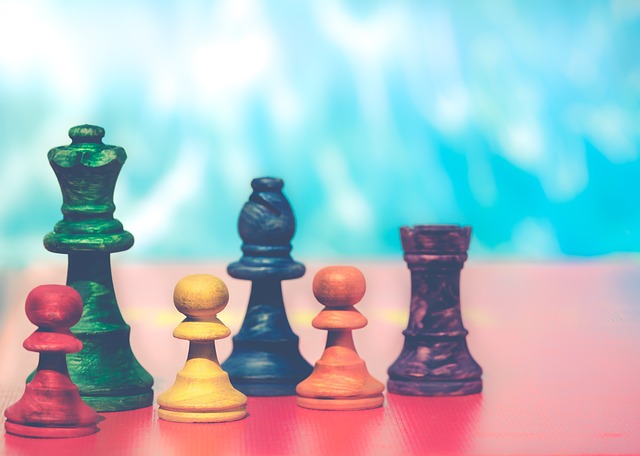The Importance of Life-Long Learning for Personal Growth
Life-long learning is a concept that emphasizes the continuous pursuit of knowledge throughout an individual’s life. Rather than viewing education as a finite process that ends upon completing formal schooling, life-long learning encourages us to embrace an ongoing journey of acquiring new skills and knowledge. As we dive into this topic, it is essential to understand how life-long learning influences personal growth and development, ultimately enhancing various aspects of our lives.
To kick things off, let’s explore what life-long learning actually means. The definition extends beyond formal education. It encompasses self-directed educational experiences, informal learning through experiences, and even lessons derived from social interactions. This multifaceted approach allows individuals to adapt to the ever-changing demands of both their personal lives and the workforce. For example, consider someone who has spent years in a particular job. They might find that advancements in technology or changes in their industry compel them to learn new skills. In this case, life-long learning offers a crucial pathway for them to remain relevant and continue thriving professionally.
Moreover, engaging in life-long learning directly contributes to personal growth. When we actively seek to learn and develop, we open ourselves up to new perspectives and ideas. Such an openness not only enriches our knowledge but also fosters critical thinking skills. By challenging ourselves to think differently and to question established norms, we stimulate our minds. This stimulation can lead to improved decision-making abilities and a more sophisticated understanding of the world around us. Additionally, life-long learning can help sharpen our problem-solving skills. As the complexities of life increase, so do our challenges. Being educated and well-informed empowers individuals to tackle obstacles more effectively.
Benefits of Life-Long Learning in Personal Development
What are the specific benefits of life-long learning when it comes to personal development? One key advantage is the ability to adapt. In a rapidly changing world, the relevance of certain skills decreases over time. Embracing a life-long learning mindset equips individuals with the versatility to pivot and adjust to new environments. For instance, the rise of remote work prompted many to enhance their digital skills. Those who immersed themselves in online courses on digital tools thrived, while others struggled to keep up. This adaptability not only applies to professional scenarios but also extends to personal situations, such as navigating new technologies in daily life or engaging in social contexts.
Additionally, life-long learning often fosters increased confidence. The more knowledge and skills we acquire, the more self-assured we become in our capabilities. Consider a person who decides to learn a new language. Initially, they may feel overwhelmed, but as they progress, their confidence grows. This newfound confidence has a ripple effect—it can encourage them to engage in new social interactions, travel to different countries, or even pursue career opportunities that require language proficiency. Imagine the doors that open when someone feels empowered to act due to their acquired knowledge!
Personal development also benefits from the social connections formed through life-long learning. Many adult educational environments, such as workshops, online courses, and seminars, provide opportunities to meet like-minded individuals. These connections can lead to new friendships, professional networks, and collaborations. The exchange of ideas in such settings not only enhances learning but also builds a sense of community and belonging. Cultivating these relationships can promote a positive emotional landscape, crucial for mental well-being. After all, engaging with others who share similar interests often leads to dynamic discussions that can illuminate perspectives we hadn’t considered.
Life-Long Learning and Emotional Intelligence
As we delve deeper into the impact of life-long learning on personal growth, it is vital to highlight the relationship between this concept and emotional intelligence (EI). Emotional intelligence refers to the ability to understand and manage our own emotions while also empathizing with others. Life-long learning greatly influences EI development. For example, as individuals engage in courses or training sessions focused on communication or conflict resolution, they are more likely to develop better awareness of their emotions and those of others. This awareness is fundamental in personal and professional interactions.
Furthermore, improving emotional intelligence translates to better interpersonal relationships. People with high EI tend to navigate social complexities effectively, understanding nonverbal cues and emotional undercurrents. Imagine a workplace where team members communicate effectively, understanding each other’s emotions. Such an environment fosters collaboration, leading to higher productivity and satisfaction. Life-long learning plays a crucial role in developing these essential skills, as it encourages individuals to reflect on their interactions and incorporate feedback, ultimately enhancing their emotional prowess.
Reflecting on personal biases and challenging assumptions is another area where life-long learning enriches emotional intelligence. Engaging in diverse learning experiences exposes individuals to different cultures, perspectives, and ways of thinking. This exposure encourages open-mindedness and promotes empathy. A diverse social circle, enriched through life-long learning, can lead to greater acceptance of differences in people, paving the way for more harmonious interactions and reduced conflict. It is through life-long learning that we expand our horizons, ultimately contributing to a more profound understanding of the human experience.
Creating a Life-Long Learning Plan
Now that we’ve explored why life-long learning is crucial, let’s focus on how to create a practical life-long learning plan. One of the first steps involves assessing current skills and identifying areas needing improvement or expansion. This self-assessment can take various forms, such as personal reflection, feedback from peers, or formal evaluations. By understanding our starting point, we can better navigate the landscape of knowledge we wish to explore. Next, it’s essential to set specific, measurable goals. Goal-setting provides structure and direction. For instance, if someone wants to improve their public speaking skills, they could set a goal to complete a toastmaster course within six months. Clear milestones keep us motivated and on track.
After establishing goals, it’s beneficial to identify learning resources. Given the plethora of options available today—such as online courses, podcasts, webinars, or local workshops—finding resources that align with individual learning preferences enhances the experience. Some people thrive in structured environments, while others prefer self-directed learning. Choosing the right format can significantly impact motivation and retention. Additionally, combining various methods, like reading articles, attending seminars, or engaging in community discussions, can deepen understanding and retention of material.
An important component of a life-long learning plan is to allocate dedicated time for learning. With busy schedules, it can be challenging to incorporate learning into our daily routines. Setting aside specific time blocks during the week not only prioritizes learning but also establishes a habit. Even short, consistent periods of learning can lead to substantial growth over time. Lastly, reflecting on what one learns is vital. Taking time to assess progress and integrating new knowledge into our daily lives reinforces learning. For instance, applying a new skill at work or discussing newly acquired concepts with friends can solidify knowledge and encourage further exploration.
Overcoming Barriers to Life-Long Learning
Despite the many benefits of life-long learning, barriers often hinder individuals from engaging in this enriching practice. One prevalent obstacle is time. With busy lives, work commitments, and personal obligations, it can seem daunting to carve out time for learning. However, it’s essential to remember that life-long learning doesn’t require hours daily. Even dedicating 20-30 minutes a few times a week can lead to significant growth over time. Prioritizing learning as a commitment, akin to going to the gym, can facilitate this process.
Another barrier can be financial constraints. While many excellent resources are available for free, certain courses, degrees, or certifications may come with a price tag. Exploring community programs, scholarships, or affordable online platforms can alleviate this issue. Many institutions offer free or discounted courses for adult learners, allowing them to engage without breaking the bank. Thus, creativity in resource discovery becomes essential in overcoming costs associated with formal education.
Moreover, a fear of failure often paralyzes individuals from pursuing new learning opportunities. This fear stems from the comparison to others, leading to self-doubt in one’s capabilities. It’s crucial to adopt a growth mindset here—understanding that mistakes are part of the learning process. Celebrating small achievements along the journey makes the path more enjoyable. Instead of seeing challenges as obstacles, viewing them as opportunities for growth can dramatically shift one’s perspective on learning.
The Role of Technology in Life-Long Learning
As we navigate this conversation about life-long learning, we can’t ignore the pivotal role that technology plays in facilitating access to learning resources. The digital age has revolutionized how we acquire knowledge. Online learning platforms offer a wealth of courses in various subjects at our fingertips. You can learn anything from coding to cooking with just a few clicks! This accessibility broadens the reach of education, regardless of geographical barriers. For instance, consider individuals in remote areas who can now access world-class educators and resources through the internet. The explosion of e-learning has made personalized learning experiences more attainable than ever before.
Moreover, technology allows for learning to happen in more flexible and diverse formats. Video lectures, interactive webinars, eBooks, and online forums provide variety, catering to different learning styles. Some may flourish through auditory learning by listening to podcasts, while others find visual aids more beneficial. By leveraging technology, individuals can select what works best for them, enhancing engagement and retention. Additionally, social media and online communities foster collaboration and discussion among learners, enriching the learning experience.
However, while technology provides vast resources, it also presents distractions. The key lies in finding balance. Managing screen time, curating feeds, and focusing on intentional learning can ensure individuals reap the benefits of technology without succumbing to its pitfalls. Creating a conducive environment by limiting distractions can set the stage for meaningful learning experiences. Thus, embracing technology’s offerings while maintaining focus empowers individuals on their learning journeys.
Conclusion: A Commitment to Life-Long Learning
Ultimately, life-long learning represents a commitment to personal growth that extends throughout our lives. By approaching education with an open mindset, we foster adaptability, resilience, and emotional intelligence—all crucial components of personal development. The path is not always easy. Barriers such as time constraints, financial limitations, and self-doubt often arise. However, with intentional strategies, such as creating plans, setting goals, and utilizing digital resources, we can surmount these challenges.
In doing so, we embrace a lifestyle dedicated to learning, leading to personal and professional enrichment. It is within this continuous journey that we discover our potential, build fulfilling connections, and contribute positively to the world. As we navigate the complexities of our lives, let us prioritize life-long learning—a powerful catalyst for growth and fulfillment.
Frequently Asked Questions
- 1. What is life-long learning?
- Life-long learning is the ongoing, voluntary, and self-motivated pursuit of knowledge for personal or professional development. It extends beyond formal education to include learning through experiences, self-study, and social interactions.
- 2. How does life-long learning contribute to personal growth?
- Life-long learning fosters adaptability, confidence, and critical thinking, which are crucial for personal growth. It also expands knowledge, enhances problem-solving skills, and encourages self-reflection.
- 3. What are the barriers to life-long learning?
- Common barriers include time constraints, financial limitations, fear of failure, and distractions from technology. Recognizing these obstacles is the first step toward overcoming them.
- 4. How can I create a life-long learning plan?
- To create a life-long learning plan, assess your current skills, set specific goals, identify learning resources that match your preferences, allocate dedicated time for learning, and reflect on your progress regularly.
- 5. What role does technology play in life-long learning?
- Technology provides vast resources for learning, offering diverse formats and flexibility. It enables access to online courses and fosters community interactions, enhancing the learning experience.



